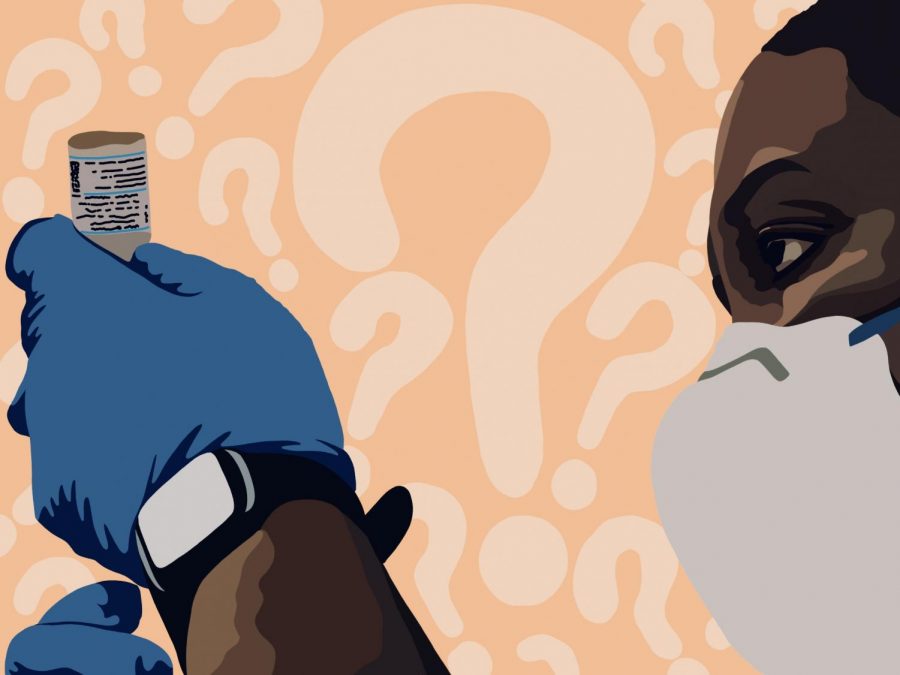Let’s debunk those common COVID-19 vaccine myths
There are many misconceptions that people possess about the new COVID-19 vaccines that need to be debunked in order for individuals to truly understand the purpose and safety behind the vaccines.
May 29, 2021
Thanks to a variety of COVID-19 vaccines being distributed across America and the world, the pandemic is slowly coming to an end. Opinions on the vaccine vary, and a plethora of COVID-19 vaccine myths are popping up and preventing many people from getting vaccinated.
To reassure you regarding the safety of the COVID-19 vaccines, here are some common coronavirus vaccine myths debunked.
Myth: The COVID-19 vaccine is not safe because it was developed too quickly
The COVID-19 vaccines were developed as quickly as possible by many pharmaceutical companies because of the impact the virus had, however, that does not mean companies bypassed safety protocols and other precautions.
Vaccines, such as the one made by Pfizer, were developed so they are free from materials of animal origin and synthesized by an efficient, cell-free process.
The Pfizer vaccine has also been tested and observed by many companies and pharmaceuticals. The Centers for Disease Control and Prevention (CDC) will also closely monitor the safety of the vaccine as it’s distributed.
Myth: I already had COVID-19, so I don’t need to get a COVID-19 vaccine
Although people who have already had COVID-19 and recovered will have some antibodies, it is unsure how long they will have immunity.
Early evidence shows natural immunity does not last very long, and there are more studies currently out. It is possible that immunity can last up to eight months, but exact numbers are not one hundred percent certain, and research is still being done on the subject.
One thing is for sure: the COVID-19 vaccine allows for longer and more certain immunity against the coronavirus.
Myth: COVID-19 vaccines cause infertility or miscarriage
Disinformation has been circulating online, including speculation that antibodies in the current COVID-19 vaccines will prevent pregnancy and cause infertility. This is false!
These claims are not scientifically plausible, and COVID-19 has not been linked to infertility or miscarriages. No viral infection by similar mechanisms used in the COVID-19 vaccine has had any connection to infertility or miscarriages as well.
The Pfizer vaccine, the only one available for teens, does not contain the actual virus. Instead, it contains an mRNA, which will teach our body to make more protective antibodies. The vaccine never interferes with the teens’ development.
Myth: The COVID-19 vaccine injects microchips for population tracking
There is zero truth proving the microchip conspiracy theory. The COVID-19 vaccines are meant for protecting a person against the coronavirus, not to track them. The vaccines have proven to be safe and effective, and the microchip conspiracy theory should not influence your decision to get a vaccine.
This myth started after Bill Gates mentioned a digital certificate on vaccine records. The technology he was referring to is not tied to the development or distribution of the vaccine.
It’s very important to be aware of COVID-19 vaccine myths. If you see something online, don’t believe it right away, look into it yourself! The COVID-19 vaccine is currently the only way to ensure your immunity to the virus. Before you make a decision on whether to get vaccinated or not, please be vigilant and avoid the torrent of misinformation that abounds in our world today.















